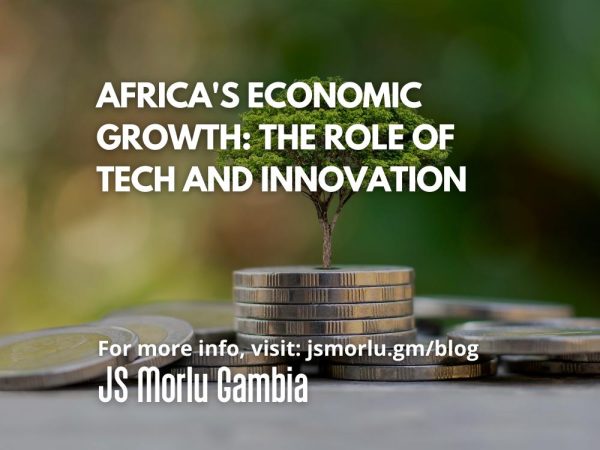The ongoing digital revolution is transforming economies and driving innovation across all economic sectors. Africa and its leaders are faced with the double challenge of achieving SDG targets while adapting to climate change. Digitally transforming all elements of the continent’s economy – from education to healthcare, agriculture to telecommunications will require innovative solutions and inclusive finance strategies.
For Africa to achieve its true potential, its people need to be empowered with the necessary digital competencies. Africans need access to digital tools and technologies, while operating within a regulatory environment that protects the safety and interests of all people.
When you consider the historiography of the internet and digital innovation, little is written about Africa’s role. Although illiteracy among adults in sub-Saharan Africa was 34.7% in 2019, innovation on the continent has taken different forms thanks to the richness of its culture and lifestyle. For example, inclusive innovation can be viewed from the lens of the many artisans and inventors in Kumasi Magazine. By shifting the lens through which we understand the people’s pain points, we can develop cutting-edge solutions through appreciative inquiry.
Africa’s computing history dates back to 1921 when South Africa took delivery of its first tabulating equipment from the then Computing-Tabulating-Recording Company which later became IBM. Subsequently, several units were deployed to the country, and by 1959 IBM installed the first actual data processing system in Johannesburg. A few years later, The Africa Centre d’Informatique du Rwanda took receipt of Africa’s first computer in 1980. This paved the way for internet adoption.
Today, Africa’s mobile service subscription figures are skyrocketing. 615 million users in sub-Saharan Africa are expected to subscribe to mobile services by 2025. This presents an immense opportunity and is testament to Africa’s creative capacities. Access to technology must be coupled to socio-economic welfare. Innovations in healthcare, education, and commerce must address the pain points of, particularly, the most vulnerable members of society. We highlight a few ways in which this can be done.

Digitizing language to improve literacy levels
Communication is at the core of the development process. There are over 2000 languages spoken in Africa. Interactions within and between communities impact the continent’s economic, social, and cultural welfare.
Governments must invest in indigenous languages to improve literacy rates and, by extension, digital literacy. Promoting the development of these languages, particularly on digital channels, can unlock critical understanding and improve communicative abilities among diverse people.
Technology should also be a tool that enables information mastery. Little to no information is available on real-time search trends in many African countries. The absence of data on search platforms for such information does not mean that it does not exist – the algorithm that pulls out this information should include countries in Africa.
Funding R&D at higher education institutions
African governments should prioritise R&D investments, focusing on producing and commercializing scientific knowledge. At the eighth ordinary session of the Assembly of the African Union in 2006, member countries pledged to contribute 1% of their gross domestic product (GDP) to R&D. Today, only four countries in Africa reach this figure in their annual budgets.
A different approach to bridge the finance gap in R&D is for higher education institutions to fundraise from non-traditional mechanisms such as micro-contributions, levies, public-private partnerships, and market-based financial transactions. Through innovative financing mechanisms, endowments at universities will allow higher education institutions to achieve better research outcomes.

Embedding a culture of innovation
The culture of innovation forms a dominant part of life in Africa. We can identify how innovation is celebrated and scaled from professional learning communities in agriculture (farmer cooperatives) and education to neighbourhood groups.
However, the innovation historiography of Africa fails to capture much of these successes. Innovations are passed from one generation to the next through indigenous knowledge. As an example, several communities continue to adapt to the effects of climate change through localized, highly-efficient mitigation mechanisms.
Meanwhile, research has shown that close to 90% of efforts put into R&D at large corporates and businesses fail. Time and human resources are key culprits in this failure. The greatest export in Africa and among its people should be creating a shared culture of innovation. Democratizing and diffusing a culture of innovation will spark a desire to develop solutions for community-specific problems. Similarly, individuals will be empowered to transform their communities.
Innovation and inclusive growth
Unlocking Africa’s growth potential requires inclusive strategies that empower everyone regardless of their economic background and literacy level. To solve our problems, we must lean on our innate creative capacities and take ownership for solving problems of the future.
Africa isn’t just a consumer of foreign innovations. We have many home-grown solutions. To see these flourish, we must invest in R&D, empower our people and scale our inventions and innovations.
Original Source: World Economic Forum
